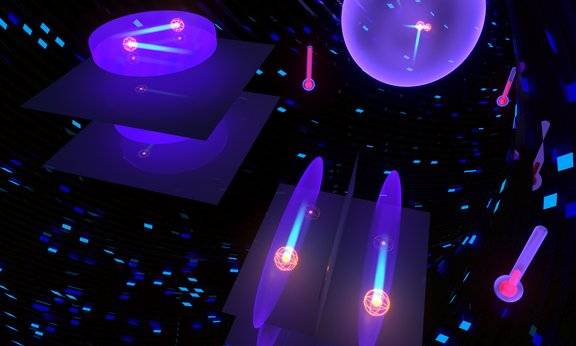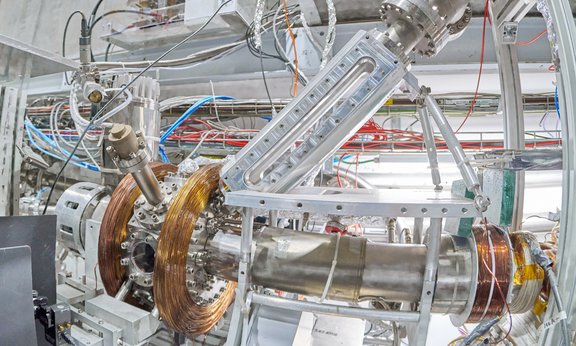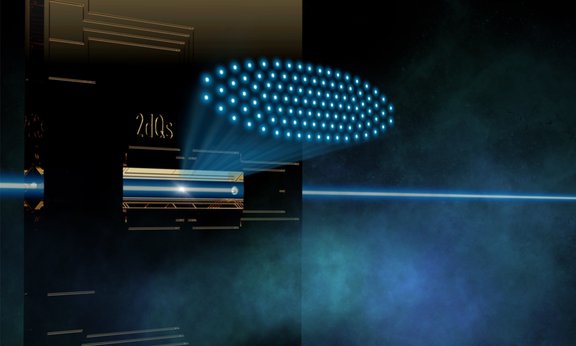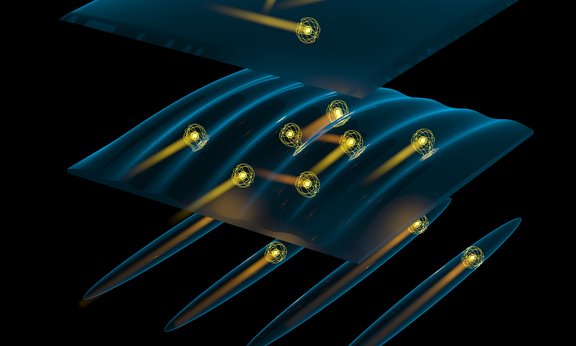
Compression may cool
An international research team from Innsbruck and Geneva has developed a new thermometry method to measure temperatures for low-dimensional quantum gases. With this method it was found that compressing a gas may lead to cooling. The results on this counterintuitive phenomenon have just been published in the prestigious journal Science Advances.

Successful Laser Cooling of Positronium
An international team of scientist including Giovanni Cerchiari from the University of Innsbruck demonstrated laser cooling of positronium, a matter-antimatter system composed of an electron and a positron, which is the antimatter counterpart. This milestone marks a pivotal advancement in our understanding and manipulation of antimatter establishing a foundation for forthcoming experiments and technological advancements.

Network of quantum sensors boosts precision
Quantum sensor technology promises even more precise measurements of physical quantities. A team led by Christian Roos at the University of Innsbruck has now compared the signals of up to 91 quantum sensors with each other and thus successfully eliminated the noise caused by interactions with the environment. Correlation spectroscopy can be used to increase the precision of sensor networks.

Dimensionality Revealed
An international research team from Innsbruck and Geneva has, for the first time, probed the dimensional crossover for ultracold quantum matter. In the regime between one and two dimensions, the quantum particles perceive their world as being 1D or 2D depending on the length scale on which they are probed: On short distances, their world is 1D, but it is 2D on long distances. The results obtained from correlation measurements have just been published in Nature Physics.
